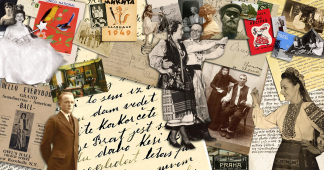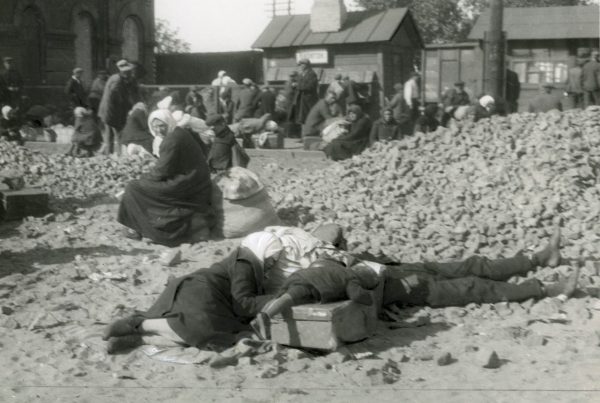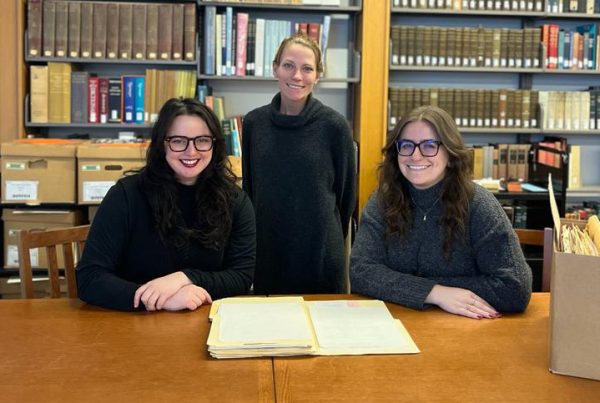By Ellen Engseth
 Curator, Immigration History Research Center Archives and Head, Migration and Social Services Collections
Curator, Immigration History Research Center Archives and Head, Migration and Social Services Collections
The Immigration History Research Center Archives is pleased to announce the Grant-in-Aid awardees and the Immigration History Research Center’s Michael J. Karni Scholarship awardee for the academic year 2016-2017.
The Grant-in-Aid awardees are:
Matteo Brera graduated from the University of Pavia (B.A., M.A.), Edinburgh (M.Sc.) and Utrecht (Ph.D.). He has worked at the University of Edinburgh (2008-2014) and is now a lecturer at Utrecht University. Matteo’s research focuses primarily on the relationship between Italian (and European) literature and ecclesiastical/political policies of book censorship. He is currently studying Italian emigrant experiences in the American South, analyzing integration policies and cultural hybridization in a transnational and comparative perspective. His project, From Outsiders to Southerners: Transnational Experiences and Cultural Hybridization of the Italian Migrants in the American South (1880-1980), aims to outline a history of the birth, the early development and the socio-cultural transformation(s) of the Italian communities in the Southern states.
Jerry Grzybowski will be researching Religion, Cultural and Educational Activity of Belarusian Emigrants in the USA After World War II. Grzybowski is teaching at the Department of Intercultural Studies in Central-Eastern Europe, Applied Linguistic Faculty, at the University of Warsaw, and holds a Ph.D. in History (2007) and a Dr. habil. of Political Sciences (Institute of Political Science; 2012) from Warsaw University. He studies the history of Belarus in the 20th century with particular emphasis on political and religious development, and the history of Belarusian emigration after 1945.
Aleksej Kalc is studying Attitudes and political activities of the Yugoslav and Italian immigrants in the USA with respect to the question of the Yugoslav national minorities in the Julian March in the inter-war period. This research is part of a broader project investigating the attitudes of the Slovenian, Croatian and Italian immigrants in Europe and Americas towards the condition of the Slovenian and Croatian ethnic minorities in Italy and their resistance against the fascist persecutions in the inter-war period. Kalc graduated in history from the University of Trieste (Italy) and obtained his Ph.D. in historical anthropology at the Institutum Studiorum Humanitatis in Ljubljana, Slovenia. Currently he is senior research fellow at the Slovenian Migration Institute (Research Center of the Slovenian Academy of Sciences and Arts) in Ljubljana and associate professor of history at the University of Primorska and the University of Nova Gorica (Slovenia).
Gregory Shibley is an independent scholar researching and writing a book on New York City’s Little Syria, an enclave of primarily Christian, Arabic-speaking immigrants, which existed from roughly 1880 to 1946 in Lower Manhattan. Shibley holds degrees from Princeton University (A.B., 1977), Harvard University (J.D., 1980) and Florida Atlantic University (M.A., History, 2014), and has taught history courses as an adjunct assistant professor most recently at J. Sergeant Reynolds Community College in Richmond, Virginia. The title of his research project while at the University of Minnesota is New York City’s Little Syria.
Karni Scholarship Awardee
The Karni Scholarship awardee is Samira Saramo, a Post-Doctoral Researcher at the John Morton Center for North American Studies at the University of Turku in Finland. Saramo received a Ph.D. in History from York University (Toronto) in 2014. Saramo’s research focuses on ethnicity, gender, childhood, emotion, place-making, and social movements in both historical and current contexts. Analyzing personal letters, memoirs, and social media narratives, Saramo is particularly interested in the form and accompanying challenges of life-writing research.
Her research project while at the University of Minnesota will be Death and Mourning in Finnish North America, proposing that a fear of dying alone in an unfamiliar land served as a catalyst for the emergence of ethnic community life in North America. Using the case study of Finnish immigrants in Canada and the United States from 1880-1939, the project examines both the everyday practices and representations of death and mourning and examines how gender, age, and class shape the social roles proscribed and adopted at times of death and grief. Overall, the project proposes a framework for conceptualizing “Finnish North America,” inquiring whether immigrant community identifications span beyond the confines of national boundaries, instead revealing cross-border ethno-regional belonging.
Congratulations to all! Please watch for future announcements about the researchers’ Research-in-Progress talks.




